CALL US TODAY
Skilled Civil Litigation Lawyers in Warrenton, VA
Resolving Disputes, Restoring Peace: Your Litigation Partner.
Do you need civil litigation lawyers in Warrenton VA? Ashwell & Ashwell, PLLC has experienced lawyers who are ready to serve you. Schedule a call with us today.








Warrenton VA Civil Litigation Attorneys
Civil litigation may solve disputes between individuals, organizations, or entities. Civil actions are crucial to seeking justice and receiving compensation for your injuries or damages, whether physical or emotional.
If you’re a party to a civil case in Warrenton, VA, you may seek the help and representation of a civil litigation lawyer. An experienced attorney can protect your rights and interests while helping you navigate the complex legal system. You can receive equitable compensation, resolution, or remedies with legal counsel.
You’ll find everything you need about civil litigation in Warrenton, VA, here.
What Is Civil Litigation?
Civil litigation is the legal process of resolving non-criminal disputes between parties. Each party puts forth its case to be decided by a civil court judge. Civil disputes may involve a broad spectrum of issues, such as construction disputes, commercial disputes, personal injury, contract breaches, employment disputes, will contests, etc.
Litigating your case in court allows you to seek remedies for injuries or losses suffered. Unlike criminal cases, civil litigation establishes liability rather than guilt and penalties.
Types of Civil Cases
Fauquier County General District Court and Circuit Court in Warrenton hear different civil cases of varying sizes. Here are some of the common civil litigation cases:
Contract Disputes
One of the most prevalent types of civil cases is contract disputes. A contractual agreement legally binds you to an obligation or right. However, a dispute may arise when one party fails to honor their contractual duties.
Contract disputes can involve contract breaches or conflicts over the interpretation of contract terms. If your contractual dispute goes to trial, the court will decide if a breach occurred and what remedies are available.
Personal Injury Claims
Personal injury cases form another significant category of civil litigation cases. Most personal injury cases arise from injury due to negligence or another person’s intentional actions. They can include car accidents, slip and fall accidents, medical malpractice, and product liability.
To secure a favorable judgment in your personal injury claim in Warrenton, Virginia, you should demonstrate that:
- You suffered injury and damages
- The defendant caused your injury
- Your injury is redressable, i.e., the court can correct or relieve your injury
You can provide evidence such as medical records, eyewitness accounts, and professional testimonies to support your case.
Property Disputes
Property disputes can be brought by individuals or entities for conflicts surrounding ownership, possession, or use of real estate, personal, or commercial property. This dispute typically arises between landlords and tenants, co-owners, or neighbors. Examples of property disputes include:
- Boundary disagreements
- Easement disagreements
- Landlord-tenant disagreement
- Adverse possession claims
- Property titles disagreements
Employment Disputes
These are disputes between a business and its employees. Such conflicts include wrongful termination, discrimination, wage and hourly disputes, or workplace harassment claims.
Employment disputes can be complex and emotionally charged. Remedying them involves in-depth knowledge of VA employment laws and familiarity with employment contracts and workplace policies. An employment law attorney can help you through the legal process and advocate for your rights.
Family Law Disputes
Family law disputes are a common subset of civil litigation. They involve legal issues impacting families, mainly child custody, alimony, divorce, and domestic violence cases.
As family law cases are often sensitive and emotionally charged, they require a compassionate approach. A civil litigation lawyer with experience in family law is well-suited to help diffuse the tension and seek resolutions that prioritize your well-being.
The Civil Litigation Process
The civil litigation process in Warrenton, VA, typically has the following steps:
- Consulting an Experienced Attorney: While having a lawyer is not mandatory, it may play a significant role in the outcome of your case. Your attorney will review your claim, assess its merits and weaknesses, and advise on the appropriate action. Reach out to Ashwell & Ashwell, PLLC, for a consultation.
- Pleadings: A civil lawsuit involves filing a complaint and all the relevant documents at the appropriate court. Your complaint should outline your claims and the reliefs you want. The defendant will be given a chance to reply to your claims.
- Discovery: The discovery phase allows both parties to gather evidence, interview witnesses, and request information from one another. This stage is critical for building a solid case.
- Pre-Trial Motions: Before the trial begins, either party may file motions to resolve specific legal issues or exclude certain evidence from the trial.
- Trial: If the case proceeds to trial, both parties present their arguments and evidence before a judge or jury. The jury then deliberates and issues a verdict.
- Appeal: Any party in a civil lawsuit can appeal the trial court’s decision. If you feel the court erred, you can challenge its decision to a higher court.
What Civil Litigation Lawyers in Warrenton, VA, Do
A civil litigation lawyer can make a difference in your civil suit. Here is how they can help you:
- Inform you of your rights under the law
- Conduct legal research to build a strong case strategy
- Draft legal documents, including complaints, answers, motions, and more
- Negotiate settlements with opposing parties to achieve favorable outcomes
- Represent you during court proceedings and present their case effectively
- Provide sound legal advice and guidance to help you make informed decisions
- Assist with arbitration or mediation if the case is not resolved in court
- Help with the appeals process if necessary
Finding the Right Civil Litigation Lawyer in Warrenton, VA
Finding the right civil litigation lawyer to represent you is crucial when facing a legal issue. You need someone with the experience, knowledge, and resources to handle your case efficiently. Consider looking for a civil litigation lawyer who:
Practices in Warrenton, VA
Hiring a lawyer familiar with Warrenton’s courts and procedures is an advantage. A local lawyer will be conversant with the area’s judges, court staff, and other lawyers.
Has Experience Handling Cases Like Yours
Every civil case is unique, but they often share similar elements. Find an attorney who has handled cases similar to yours successfully.
Communicates Effectively
Effective communication between you and your lawyer is necessary for a successful outcome. Therefore, ensure that the attorney you choose has excellent communication skills.
Is Responsive and Accessible
Your lawyer should be available to answer your questions, address your concerns, and update you on the progress of your case. Choose an attorney who prioritizes client communication.
Is Reputable
Research the lawyer’s reputation by reading online reviews, requesting referrals from friends or family, and checking with your local bar association. A respected attorney is more likely to handle your case efficiently.
How Our Civil Litigation Lawyers Can Help You
Civil disputes can be mentally taxing and lead to loss or injury. Let a knowledgeable attorney from Ashwell & Ashwell, PLLC stand with you as you seek compensation for your injuries or damages.
Our experienced civil litigation attorneys or lawyers can help you navigate the complexities of your case and work to get you an optimal outcome. We understand the financial and emotional toll legal disputes can take on you and are committed to offering you compassionate, effective legal representation.
Schedule a Consultation with Ashwell & Ashwell, PLLC
Our team of experienced civil litigators provides personalized and effective legal representation. Experienced attorneys at Ashwell & Ashwell, PLLC have represented clients in state and federal courts and built a strong reputation in several practice areas. Therefore, you can rest assured that we have the knowledge, experience, and resources to handle your case, no matter how complex it may be.
Our civil and criminal defense law firm is located in Warrenton, Fauquier County, but we serve clients across Northern Virginia down through the Piedmont Region. Contact us today to schedule your consultation.
Frequently Asked Questions
Is a Civil Case Handled the Same as a Criminal Case?
No, civil and criminal cases differ significantly. Civil cases arise between private parties and are litigated to obtain injunctions or monetary compensation. Criminal cases involve offenses against the state that may carry criminal penalties.
How Much Does a Civil Litigation Attorney Cost?
The cost of hiring a civil litigation attorney varies depending on the complexity of your case and your attorney’s experience. Ensure you discuss fees and payment arrangements during the initial consultation.
How Long Does a Civil Lawsuit Take?
A civil suit’s longevity depends on the complexity of your case, court schedules, and whether a settlement is reached. Some cases resolve in a few months, while others go on for years.


